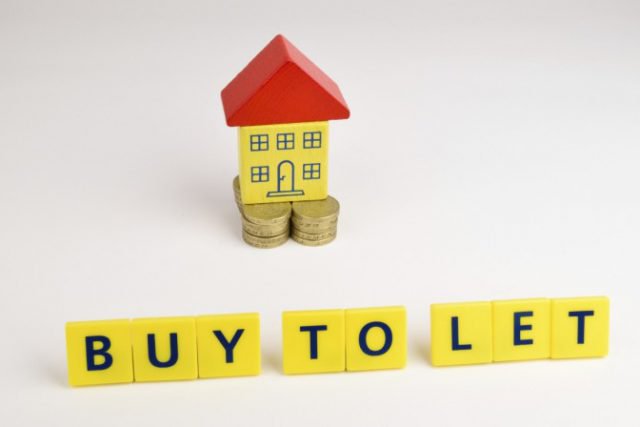One week ago (6th April 2017), the amount of tax relief that landlords can claim on finance costs – including mortgage interest – began to be restricted to the basic rate of Income Tax.
If you haven’t yet considered how you’ll be affected by the tax relief changes, you must start to think about the different ways you can structure your buy-to-let business.
If you’re a higher rate taxpayer (please note that some basic rate taxpayers will be pushed up into the higher bracket), you may be particularly hard hit. However, if you do not have a mortgage or if you’re a lower rate taxpayer, you will not be affected at all.
London estate agent Portico recently attended a talk by Tony Gimple from Less Tax for Landlords, who said that, in practical terms, landlords now have four options.
If you haven’t already, here are the four options to consider:
- Sell up
The first option is to sell your portfolio and invest your money elsewhere, save it or spend it. Although you would have to take the Capital Gains Tax (CGT) hit and mortgage penalties, if you’re thinking of retiring anyway, this could be a good option.
However, this isn’t something that the majority of landlords will want to do right now, as, although the market is suffering a post-Brexit slump, property is still a very good investment option. When compared to other asset classes, property is definitely the best vehicle for achieving wealth.
- Do nothing

The 4 Options Available to Landlords Following Tax Relief Changes
Option two is to do nothing. This will be a default decision for the majority, which is absolutely fine so long as you have explored the different options available to you and are aware of how you’ll be affected by the tax relief changes.
This option will most likely mean, however, that your tax bill is increased and your disposable income is decreased, but it will not severely affect those with only one or two properties.
- Incorporate
The most publicised way to beat the tax relief changes is to sell your properties to a limited company that you own.
Gimple made it quite clear that he doesn’t think full incorporation or incorporating temporarily through a Limited Liability Partnership (LLP) is the best move – see the next sections for reasons why.
Likewise, he said that trusts are also not an effective solution and their use for property is far more limited than it used to be. They are over-complex, he said, especially when it comes to mortgage flexibility and Inheritance Tax mitigation, making them a bad option for landlords.
What is Section 162 incorporation relief?
Section 162 incorporation relief is available to help negate the requirement of CGT or Stamp Duty when transferring existing personally-held investment properties into a limited company.
However, you can only claim Section 162 relief if you’re working in the business, or, as Gimple put it, dealing with tenants and toilets yourself.
The pitfalls
Nevertheless, Gimple went on to say that there are more cons than pros to incorporating. Companies are great if you’re selling the whole company, as the buyer doesn’t pay Stamp Duty on the individual assets, only on the shares, at 0.5%. If you’re disposing of individual properties, you’re still required to pay the equivalent of CGT – Corporation Tax, which is slightly lower.
A negative is that you may need your lender’s consent to use your loan account and, if they lose their lending appetite, you’ll need a new company and new lender for every new property.
The big problem with limited companies, however, is getting your money out. In fact, Gimple said it’s virtually impossible to take the money out of a company without paying tax, which often results in double taxation – Corporation Tax, Dividend Tax, Income Tax and National Insurance. And, if it’s an investment company, it will be subject to Inheritance Tax.
- Hybrid
The final option that Gimple gave was the hybrid structure, which he described as “truly running your portfolio as a property business, whilst at the same time reducing tax leakage to the legal minimum”.
This option involves holding your current or future investment properties through a personal ownership/LLP and limited company mix – a recognised corporate structure.
Gimple said that owning investment properties this way typically offers the most balanced solution, as it allows you to legally separate ownership from enjoyment from control, via multiple legal personalities, so as to minimise tax insofar as the law allows, and keep as much profit as legally possible. You will also not suffer the loss of mortgage interest tax relief or Wear and Tear Allowance.
Gimple took the following questions from the floor:
“If I go down the hybrid route, do I have to tell Land Registry?”
He responded: “No, because there’s no change of title. You don’t even need to tell the lenders, as there’s no fundamental breach of mortgage conditions – the lending remains in your name. We’re not using beneficial interest company trusts, it’s perfectly acceptable.”
“When it comes to LLP, how do you differentiate between distribution profit and return of capital?”
He answered: “It’s what you decide to call it. With LLPs or a partnerships generally, you’re allowed to once a year say we’ll distribute profit, or this year we’ll return capital. It’s up to you. The law allows you to call it either, just one will pay tax on it and one you won’t. Sometimes you will want to pay tax on it. Why? Because in two years’ time when I want to build that house and borrow a million and a half quid in my name, I’ve got to show a lender a SA302 to say that I can afford it and that it’s my money not my businesses.”
“Would you have to pay CGT or Stamp Duty?”
Gimple replied: “In broad terms, CGT and Stamp Duty would only arise if there were a change of title, i.e. the owner (Bill Bloggs) transfers the ownership to another legal personality (Bill Bloggs Property Holdings Limited). As in the case of hybrid arrangements, there is no change in title (Bill Bloggs still owns them), CGT and Stamp Duty events do not occur.”
What should you do?
Unfortunately, there is not one answer for all landlords. If you have one or two properties and you’re a higher rate taxpayer, you will feel a little sting from the new tax relief changes. But, it is probably not worth getting into something complex.
If, however, you are a seasoned landlord or want to make a positive decision to run a highly tax-efficient, professional property business, then Gimple suggests starting to look at how you’re going to structure it.
Follow the advice above to make the right decision for you.






